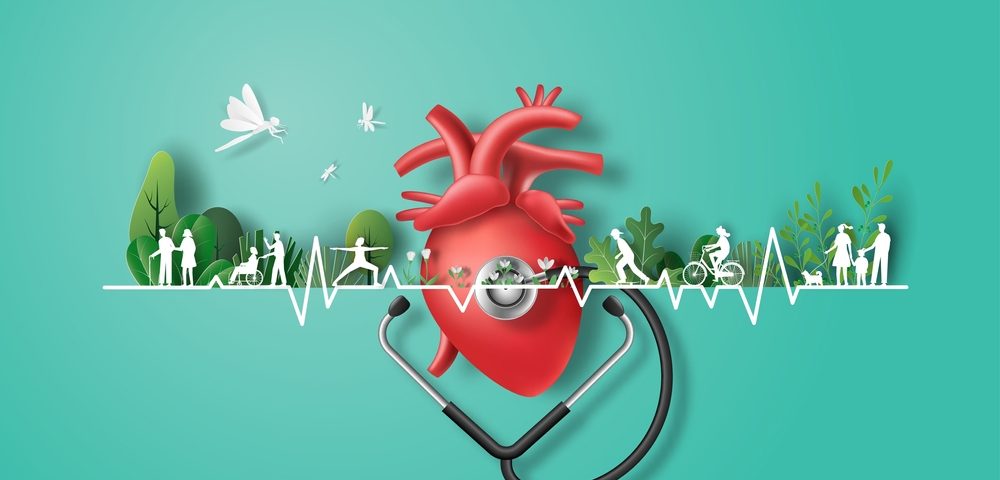
Longing for Belonging
September 21, 2022According to the World Atlas, cardiovascular disease is the main cause of death in both rural and urban areas of India. Data from the Centers for Disease Control and Prevention support this. In India, cardiovascular illnesses are responsible for 24.8% of deaths. Despite the fact that as you get older, your risk of developing cardiovascular disease increases, you shouldn’t simply assume that it will. Regardless of your age, there are numerous things you can do to maintain a healthy heart.
Following are some pointers for preserving cardiovascular health:
- Exercise regularly to stay active.
At any age, exercise is beneficial for your cardiovascular health. Nearly every day of the week, experts advise getting at least 30 minutes of exercise.
Activities that strengthen muscles, enhance balance, promote flexibility, and engage in aerobic (or endurance) exercise should all be done on a regular basis by healthy older persons. Whatever you do, make sure to move slowly to avoid pain and soreness.
Numerous activities provide you with multiple advantages. You gain aerobic and strengthening benefits from weighted water aerobics. Yoga combines strengthening, flexibility, and balance. Walking is an excellent workout for maintaining bone mass, improving brain function, reducing blood sugar, losing weight, and increasing strength and stamina. Make certain to:
- Spend time warming up and cooling down (about 10 minutes each)
- Begin slowly and increase your intensity as you go.
- Put on a pair of supportive footwear.
- Stop if you experience pain, drowsiness, or shortness of breath.
- Hydrate well before, during, and after physical activity.
- Spend time warming up and cooling down (about 10 minutes each)
Director of VridhCare, Gargi Lakhanpal advises, “Make sure to speak with your doctor to find out what form of exercise is safe or beneficial for you. It could be beneficial to put your fitness goals in writing and keep a progress diary.
- Consume heart-healthy foods.
One of the most vital factors in preventing cardiovascular disease is what you eat. Make certain to:
- Choose nutrient-dense fruits and vegetables “from the rainbow” (choose a variety of orange, yellow, and green vegetables)
- Go for whole grains such as brown rice, oatmeal, whole-wheat bread, and roti.
- Include fat-free or low-fat milk, cheese, soy or rice milk, or milk that has been fortified with calcium and vitamin D.
- Seafood, lean meats, poultry, beans, nuts, and seeds are all good sources of protein.
- Steer clear of sugar-sweetened beverages and desserts.
- Eat fewer foods that contain butter, shortening, or other fats.
- Avoid products made from refined grains, such as white bread, rice, and pasta.
You can create a successful dietary plan with the assistance of your primary care physician or a nutritionist. Understanding how to accurately read the nutritional information is also beneficial, according to Gargi Lakhanpal.
- Examine your numbers
Making routine checkup appointments with your primary care provider is crucial. Discuss with your doctor how frequently you should be checked for heart-related illnesses, such as high blood pressure, high cholesterol, and diabetes. The advice you receive will depend on your age, health state, medical history, and risk factors.
- Monitor your weight
Your risk of heart disease, high blood pressure, type 2 diabetes, and bone problems may increase if you are overweight or obese. As you age, maintaining strength and a healthy weight may be possible if you eat sensibly and engage in regular physical activity to preserve your muscles and bones.
Older people often require fewer calories to maintain their weight than younger ones do due to muscle mass loss and a slowdown in metabolism. As a result, you must consume meals that are “nutrient dense” or high in nutrients since you have fewer calories to help you obtain the nutrients your body requires for energy.
Congestive heart failure patients must check their weight carefully because a sudden gain could be an indication of potentially hazardous fluid retention.
- Examine your sleep apnea.
Snoring is usually not harmful to your health, even though it may annoy your companion. However, it can be harmful to your cardiovascular health if sleep apnea is present.
When a person’s breathing stops while they are asleep, they have sleep apnea. The sleeper may occasionally be awakened by these episodes, which can range in severity from moderate to severe, since they cause gasps for air. Some people don’t even realize they have it because of this.
High blood pressure, arrhythmia, stroke, and heart failure are all linked to sleep apnea. Obstructive sleep apnea, one of two forms, is the more prevalent variety and is caused by excess weight on the upper chest and neck. Symptoms can frequently be lessened or eliminated with weight loss.
- Quit smoking
If you smoke, now is the moment to stop. Don’t put it off until tomorrow; do it now. Consult your doctor about resources to stop smoking.
- Limit your alcohol consumption
Drinking too much alcohol can make heart disease-related health issues including excessive cholesterol, arrhythmias, and blood pressure worse.




